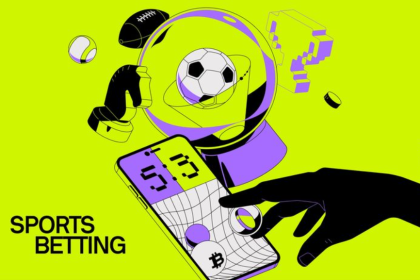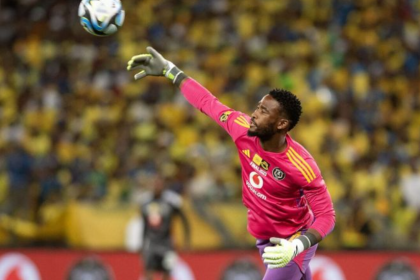One of the most popular forms of gambling is sports betting, which takes advantage of the passion of sports fans. By making a bet on a race or event, fans can show their knowledge of a particular sport or their support for a certain team or rival.
When handicapping systems that give odds and point spreads increase the bettors’ stake in the game, sports betting can liven up otherwise boring or one-sided events and promote camaraderie among friends.
Despite the fact that legal sports betting is getting more and more popular, the majority of wagering on sporting events is illegal and is done through bookmakers, also known as bookies (working as individuals or for crime organizations), and Internet gambling operations (which are legal in some countries).
Horse racing is the most popular activity for bets, although large wagers are also placed on other football competitions, such as soccer, rugby, and Australian rules football. There are other other sports, such as boxing, basketball, baseball, cricket, ice hockey, dog and camel racing, and jai alai.
Kinds of wagering
The earliest sort of wager was probably a winner-take-all bet on the result of a contest. A casino or bookmaker will evaluate the participants in a match and determine the likelihood of victory: 2 to 1, 5 to 1, 1 to 4, and so on. This is one of the most popular sorts of sports gambling nowadays.
A bettor will win $2 if, for example, they wager $1 on a 2-to-1 underdog and the underdog prevails. If you bet on the favorite, you’ll receive a reduced payoff if you win; for example, a $5 bet on a 2-to-5 favorite returns a $2 payout. Today, odds betting is prevalent in both baseball and boxing.
The majority of racing and sporting events (including jai alai) use a pari-mutuel betting system (like those involving horses, dogs, and camels). This technique, which was put into place in 1865 after Pierre Oller, a Frenchman, invented the “totalizator,” employs a calculator to keep track of the sums gambled on each competitor prior to the tournament.
For instance, in horse racing, the “totalizator” determines how much should be paid to those who accurately predicted the winner by computing the odds based on the percentage of the total wager placed on each horse. The bookmaker or track owner keeps a share of the total amount wagered as their fee.
A point spread method is used in most basketball contests as well as football (soccer, gridiron football, rugby, etc.) contests. Bookmakers choose the number of points that will be utilized as a spread for a particular game. When betting on the favorite team, the bettor must yield (or give) the point spread.
When a bettor places a bet on the underdog team, they are offered the point spread. For example, when an underdog team is bet as +4, four points are added to its final score to decide the outcome of the wager. A bet of 4 on the favorite team only pays off if they triumph by more than four points (or goals in the case of soccer).
There is also mixed systems betting. When more goals are scored in ice hockey, bets are made with odds (or surrendered). Odds are regularly determined in soccer based on the outcome. One of the many additional alternatives is to wager on the sum of the scores for both teams.
A “over/under” wager is one in which the bettor decides to place a wager on either the “over” (i.e., the total number of points will exceed the anticipated amount) or the “under” of the total number of points for the game as predicted by the bookmaker (total points will fall short of the predicted amount). At the beginning of a sporting season, the chances of a team winning the championship are forecasted.
Pools and fantasy leagues are two more popular sports betting formats. The majority of these events are still planned by friends and coworkers, despite the fact that large-scale versions of them are increasingly being run by Internet-based corporations.
Pools can be lotteries in which the winning numbers must match the total or a portion of the score, forecasts of contest outcomes or the week’s schedule of games, or both. Before a game (or season) begins, participants in fantasy leagues select actual athletes for a “fantasy squad.” The bettor who has the best players in terms of a certain statistic is the winner.
Sports betting can be consistently successful if participants have superior knowledge of players and teams, which many sports fans believe they do (sometimes mistakenly). The media frequently covers sports, and there are numerous information services available. Gamblers feel in control and confident as a result, which encourages them to place wagers. Even when they lose, they keep betting, blaming bad luck or poor performance on the part of the players, coaches, or referees.
Ethical issues
Most bettors think that competitors give it their all when competing. Even the slightest suggestion that sportsmen are “on the take” or “throwing” games or matches for financial gain can have a negative impact on a sport. As interest in professional sports grew in the 19th century, so did worries that gambling would sully the competition.
In fact, unregulated gambling frequently attracted criminals looking to make quick cash, which resulted in a number of scandals. Most of these involved paying athletes to purposefully lose games or, in the case of basketball and football, to “shave” points, or win by a narrower margin than expected.
One of the most well-known of these scandals was the Black Sox Scandal, in which eight Chicago White Sox players were charged with tampering in the 1919 World Series. The American intercollegiate basketball scene was rocked by several bribery scandals in the 1950s. Football (soccer) competitions in Germany and Italy were the first to be impacted by the widespread corruption in subsequent decades. Professional boxing has long been vilified due to its association with organized crime organizations that urged prizefighters to “take dives.”
In the current era of sports, gambling has been outlawed with the exception of horse and dog racing and a few other sports. Indeed, governments and sports organizations have enacted strict antigambling regulations to protect the general public and the integrity of competitive competition.
Sports gambling hasn’t lost any of its attractiveness, despite the fact that it is prohibited. Many nations were looking for ways to legalize gambling by the second half of the 20th century without falling victim to the corruption that frequently seemed to go hand in hand with it. According to pro-gambling organizations, legalization and regulation were the obvious fixes. In 1960, gambling became legal in the United Kingdom.
Due to differences in state and federal regulations, some kinds of sports gambling were legal in the United States while others were illegal. Sports betting increased after federal taxes on permissible gambling were decreased in 1983. Germany and many other countries use the money from lotteries and betting pools to support amateur sports.
Despite being legal, gambling scandals nevertheless plague the sports sector. In a 1999 survey, it was discovered that 5% of American male college athletes who bet on sports also gave advice to other gamblers. In 2002, it was uncovered that British jockey club members had fixed races by feeding horses illegal drugs and allowing bettors access to confidential information.
In 2004, it was alleged that Italian soccer players tampered with matches to facilitate foreign gamblers putting significant wagers. The legal gaming industry is quick to remind out that most controversies involve illegal gambling, though. In truth, Nevada casinos have provided crucial information on scandals and cooperated with federal authorities probing into wrongdoing, claiming that the biggest threats to the industry are scandals.





